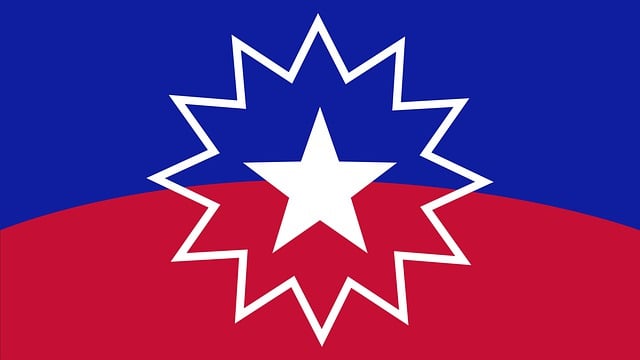During the civil war, enslaved men fled from their enslavers and flocked to Union lines. John C. Fremont, a Union general, issued a proclamation freeing the enslaved people of Missouri rebels. President Lincoln revoked the proclamation. In spite of pressure from congressional liberals, abolitionists, and free black leaders, he ignored them and for almost two years and appeased the slaveholding Border States. He maintained the position that the war was a misunderstanding between white gentlemen and no way related to black people or slavery.
The Union was in a dither over fugitive enslaved men who persisted in leaving their enslavers and seeking refuge under the American flag. No one knew what to do with them. Eventually, they were dubbed “contrabands of war.” The word “contraband” caught on and permitted the North to strike at slavery without using the real word. Congress forbade Union officers from returning the fugitives to rebels, emancipated District of Columbia slaves, declared free the slaves of all rebels and gave President Lincoln the discretionary power to use black troops.
As the war heated up, Lincoln called his Cabinet together and on July 22, 1862, drafted a preliminary Emancipation Proclamation. His Secretary of State thought the timing was bad therefore Lincoln put the document in his desk drawer and waited for the Union to win the battle. While he waited, three generals began organizing Negro regiments. General David Hunter organized the First South Carolina Volunteers and General Jim Lane organized the First Kansas “Colored “Volunteers. The government did not extend official recognition to these regiments until January, 1863.
In New Orleans, General Ben Butler needed men and black men were all around him. The sons of thousands of white mothers were killed. Fourteen hundred free black men had organized a regiment of free black Confederate soldiers. Butler wanted to know if they would fight. The spokesman said, “General, the only cowardly blood we have got in our veins is the white blood.” General Butler issued the necessary papers and the First Louisiana Native Guards became the first Negro regiment to receive official recognition in the Union Army.
In the meantime, President Lincoln was finishing the phrases of the preliminary Emancipation Proclamation. On September 22, 1962, he notified the South that he would free all enslaved people in states in rebellion on January 1, 1863. Wednesday, December 31, 1862 was a day of anticipation. That night, black people gathered in churches and prayed the Old Age out and the New Age in.
On the night of the first day of January in “the Year of Jubilee,” black and white people gathered together at Tremont Temple in Boston. President Lincoln had not yet signed the proclamation. Many people, including Frederick Douglass, spoke but there was no word yet from Lincoln. Suddenly, a man ran screaming into the room shouting the proclamation was coming.
Slavery ended with the Emancipation Proclamation on January 1, 1863 but in reality, it didn’t instantly free enslaved people. The proclamation only applied to places under Confederate control. It did not apply to slave-holding Border States or rebel states already under Union control. Planters attempted to hide enslaved people from the advancing Union Army. There was a mass migration. Many formerly enslaved people found employment in the Union Army. By the end of 1863, there were approximately 50,000 black soldiers in Union ranks.
Even though President Lincoln signed the Emancipation Proclamation two and a half years earlier, it was not until June 19, 1865 that the slaves in Texas were free. Federal troops arrived in Galveston, Texas to take control of the state. An annual celebration called Juneteenth honors the real end of slavery in the United States.
Juneteenth marks the day in 1865 when federal troops arrived in Galveston, Texas to take control of the state and ensure all enslaved people were freed. The general of the confederacy, Robert E. Lee, had surrendered at Appomattox Course house in Virginia, two months earlier. He surrendered his 28,000 Confederate troops to Union General, Ulysses S. Grant. This officially ended the American Civil War. Two and a half years after signing the Emancipation Proclamation, slavery remained relatively unaffected in Texas. The state had not experienced any large-scale fighting or significance presence of Union troops. Many enslavers had moved there from other states and considered it a safe haven.
It was not until General Gordon Granger stood on Texas soil and read General Orders No. 3: “The people of Texas are informed that, in accordance with a proclamation from the Executive of the United States, all slaves are free.” After the war ended in April 1865, his arrival in Galveston that June signaled freedom for Texas’s 250,000 enslaved people. Emancipation didn’t happen overnight because enslavers withheld the information until after harvest seasons. Afterwards, celebrations broke out among the newly freed black people and Juneteenth was born. That December, slavery in America was formally abolished with the adoption of the 13th Amendment. The following year, freedmen in Texas organized the first “Jubilee Day” on June 19th. The tradition spread to other states.
Texas was the first state to make Juneteenth an official holiday in 1980. Several other states followed. In June 2021, Congress passed a resolution establishing Juneteenth a federal holiday. President Biden signed it into law on June 17, 2021.
This year, 2023, the Tennessee Legislature voted Juneteenth to be a paid state holiday. The bill was signed by Governor Bill Lee.
Francie Mae. June 18, 2023.
References
Bennett, Lerone Jr. 1962. Before the Mayflower: A History of the Negro in America 1619-1962. 2017 edition. BN Publishing.
What is Juneteenth? Elizabeth. Nix. HISTORY. https://www.history.com/news/what-is-juneteenth. Date Accessed: June 18, 2023. A&E Television Networks. Last Updated June 12, 2023. Original Published Date: June 19, 2015.
